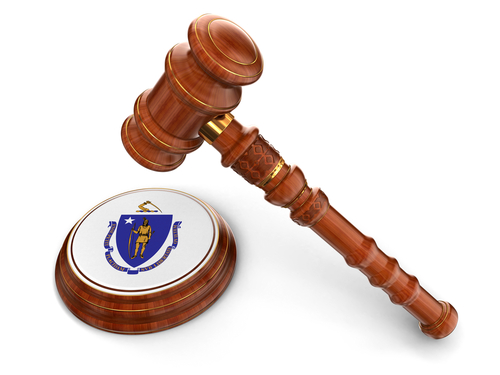Ban on ‘rude’ public comments at town meetings violates state constitution, court rules

Image from Shutterstock.
A policy allowing only “respectful and courteous” public comments at town meetings violates the state constitution, the Massachusetts Supreme Judicial Court has ruled.
The Massachusetts town of Southborough’s comment policy violated protections for freedom of assembly and freedom of speech in the Massachusetts Declaration of Rights, the top state court ruled March 7.
The policy at issue partly reads: “All remarks and dialogue in public meetings must be respectful and courteous, free of rude, personal or slanderous remarks. Inappropriate language and/or shouting will not be tolerated.”
Justice Scott L. Kafker wrote the opinion striking down the policy.
“Although civility, of course, is to be encouraged, it cannot be required regarding the content of what may be said in a public comment session of a governmental meeting,” wrote Kafker for the Massachusetts Supreme Judicial Court.
“What can be required is that the public comment session be conducted in an ‘orderly and peaceable’ manner, including designating when public comment shall be allowed in the governmental meeting, the time limits for each person speaking, and rules preventing speakers from disrupting others and removing those speakers if they do.”
The plaintiff in the case, Louise Barron, was accused of violating the civility policy during a town meeting and threatened with physical removal. In her remarks, she said the town was “spending like drunken sailors” and said the town board had violated the state’s open meetings law.
Even though board members are volunteers, “breaking the law is breaking the law,” Barron said.
A town official interjected, telling Barron that if she wanted to slander town officials, the public comment session would be stopped.
“Look, you need to stop being a Hitler.” Barron said. “You’re a Hitler. I can say what I want.”
The board member called a recess. After turning off his microphone, the board member pointed in Barron’s direction. He allegedly yelled, “You’re disgusting,” and said Barron would be escorted from the meeting if she didn’t leave. Barron left.
The state constitutional provision regarding the right to assembly was drafted by John Adams, with some help from his cousin Samuel Adams, Kafker said. It provides for the right to assemble, the right to give instructions to representatives and the right to seek redress of wrongs.
The provision, Kafker said, “expressly envisions a politically active and engaged, even aggrieved and angry, populace.” It also “reflects the lessons and the spirit of the American Revolution.”
Turning to the free speech issue, Kafker said the town’s civility code is directed at government speech, and it is content based, requiring strict scrutiny of restrictions. The policy also appears to be viewpoint based, Kafker said, because it allows “lavish praise” while “disallowing harsh criticism of government officials.”
“In this country, we have never concluded that there is a compelling need to mandate that political discourse with those with whom we strongly disagree be courteous and respectful,” Kafker said.
Hat tip to Law360 and MySouthborough.com, which had coverage, and the Volokh Conspiracy, which had opinion highlights.
Write a letter to the editor, share a story tip or update, or report an error.



